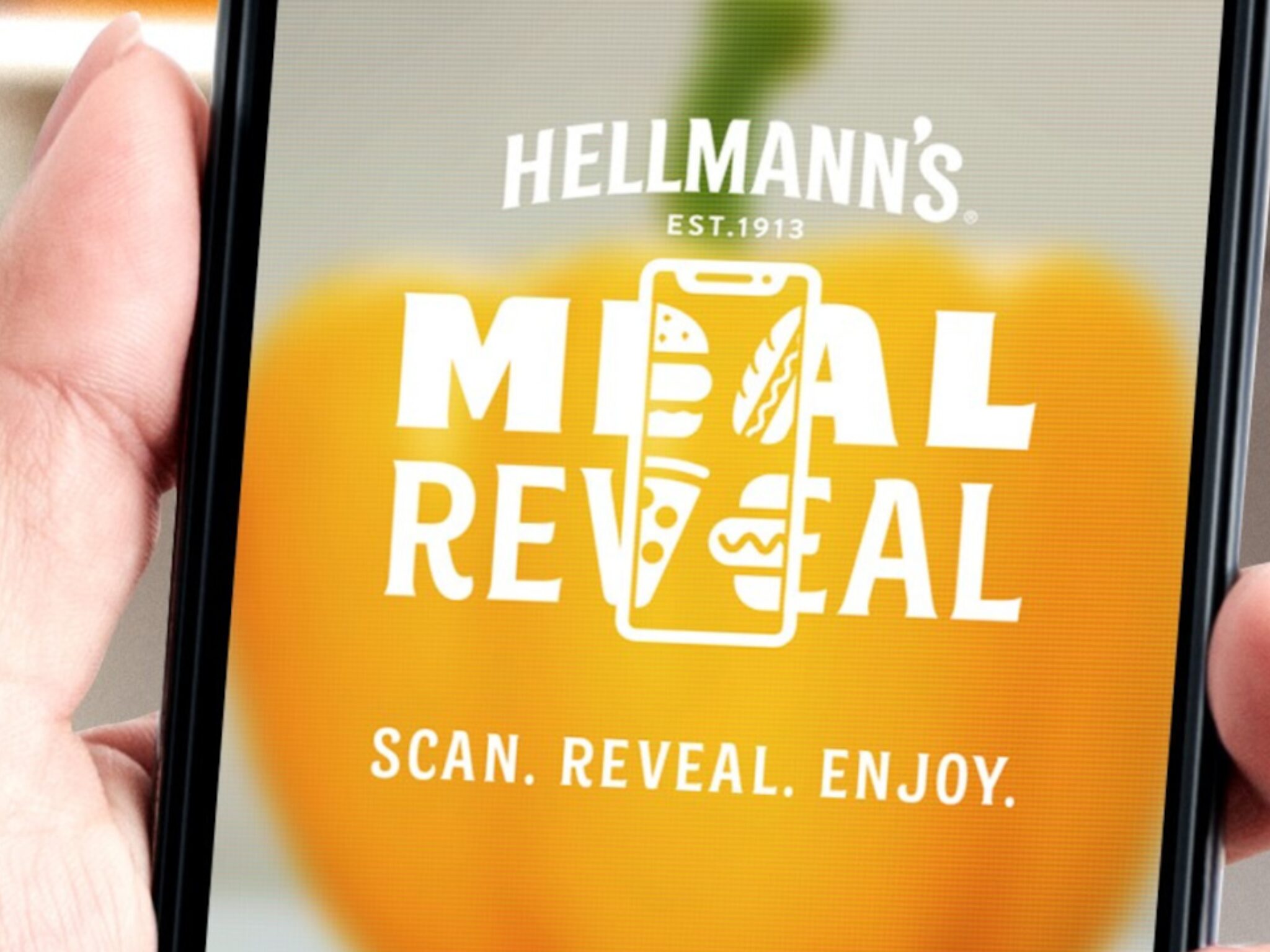5 Mins Read
Unilever-owned mayo brand Hellmann’s has rolled out an AI-enabled tool that uses an ingredient scan to produce recipes that can help households use up food and reduce waste.
Launch your camera app, scan your fridge, and your phone will tell you what you can cook tonight.
That’s the promise of Hellmann’s new Meal Reveal tool, which leverages AI tech from Google Cloud to allow households to use up the ingredients they have lying around and decrease the amount of food that’s binned. It was unveiled in the UK during climate action charity WRAP’s Food Waste Action Week (March 18 to 24).
Hellmann’s aims to tackle the UK’s huge food waste problem: excluding the inedible parts of food, about 6.4 million tonnes of food that can be eaten goes to waste in the country every year, according to research from WRAP. Households alone account for 73% of this figure, throwing away £17B worth of food – this includes nearly three million potatoes, a million whole bananas, 1.4 million tomatoes, and the equivalent of 25 million slices of bread.
This translates to 95kg per person or 247kg per four-person household annually. All this despite 7% of the British population – or 4.7 million adults – living in food poverty, and food waste accounting for 4.3% of the UK’s overall GHG emissions.
Something has to change, and that’s what Hellmann’s Meal Reveal app is trying to do. “People never set out wanting to throw food away. Food waste is an unintended consequence of our busy lives, where we look in the fridge after a long day and see disparate ingredients but nothing to eat,” said Hellmann’s global VP Christina Bauer-Plank. “We saw an opportunity here to create a straightforward, easy-to-use tool.”
Using AI-generated recipes to cut food waste
Hellmann’s designed Meal Reveal in response to what it calls ‘fridge blindness’, a common contributor to household food waste. It refers to situations when you have a full fridge of ingredients, but you can’t see or imagine what meals to make. It’s an extension of the mayo maker’s Make Taste, Not Waste campaign, which was launched in 2021.
The international initiative has entailed challenges like the four-week-long Fridge Night, dedicated Super Bowl ads for four years running, as well as a partnership with Ogilvy for use-what-you’ve-got recipes and a Smart Jar that revealed hidden messages when placed in fridges at 5°C or lower (following a study that revealed three million UK fridges are running too warm, and spoilage can be delayed by three days if food is chilled below 5°C).
Meal Reveal provides “time-saving and convenient” solutions to consumers “struggling to make sense” of how the food in their fridge can be turned into a meal. Here’s how it works: users scan food in their fridge using their phone cameras, sharing it in the app either via video or uploading images. The generative AI tech then identifies the ingredients, and matches them with recommended recipes for a quick, simple meal.
“Meal Reveal is powered by the latest Google technology where a simple scan of the leftover ingredients lets you see the delicious potential in your fridge, in the palm of your hand,” explained Bauer-Plank. The Unilever-owned mayo giant says it “inspires more than 200 million people across the world to be more resourceful with their food” every year.
The app leverages Google Cloud’s Vertex AI platform to identify individual ingredients. Its search tool combines with Unilever’s proprietary algorithm to filter through a recipe database, coming up with dishes that may not seem obvious, encouraging culinary creativity. This extends Hellmann’s longstanding partnership with the tech giant.
“We were excited to create the innovative solution Meal Reveal to a persistent challenge of seeing the possibilities of the food in our fridge,” said Laurence Lafont, Google Cloud’s strategic industries VP for EMEA. “In its nascent stage, the more people use Meal Reveal, the more the tool will learn ingredients in our fridges and help provide the best recipes to use up what we already have.”
Public-private partnerships key to tackling food waste
The Meal Reveal launch came around the same time WRAP and the UNEP released their 2024 Food Waste Index Report, which revealed that about 32% of food across the global supply chain goes to waste, racking up $1T in economic losses, just as 783 million people go hungry and a third of the population faces food insecurity.
Alarmingly, households around the world throw over one billion meals every day (which is a very conservative estimate), equivalent to 1.3 meals daily for every person impacted by hunger. In 2022, households accounted for 60% of total food waste, amounting to 631 million tonnes. The commercial food sector isn’t faultless, though, with the foodservice industry responsible for 290 million tonnes (28%) and retail accounting for 131 million tonnes (12%).
Apart from the food insecurity issues, food waste also has a major climate footprint, contributing to 8-10% of global emissions (five times higher than the entire aviation industry). Additionally, with over a quarter of agricultural land transferred to produce food that is eventually wasted, intensive farming displaces wildlife too.
The 2022 Kunming-Montreal Global Biodiversity Framework linked the problem with biodiversity loss and set out a goal to cut food waste in half by 2030. Similarly, one of the UN’s Sustainable Development Goals targets a 50% reduction in per capita food waste and a decline in food loss across the supply chain in this period.
However, only 21 countries – including Cabo Verde, China, Namibia, Sierra Leone, and the UAE – mention food waste or loss reduction in their nationally determined contributions towards global climate goals. “With the huge cost to the environment, society, and global economies caused by food waste, we need greater coordinated action across continents and supply chains,” said WRAP CEO Harriet Lamb.
Nations like the UK, Australia, Indonesia, Japan, Mexico and South Africa have significantly cut food waste since 2007. “If countries prioritise this issue, they can significantly reverse food loss and waste, reduce climate impacts and economic losses, and accelerate progress on global goals,” noted UNEP executive director Andersen.
The Food Waste Index outlined the importance of public-private partnerships in tackling the food waste epidemic. But these require support, whether that’s philanthropic, business, or governmental, said Lamb. “Actors must rally behind programmes addressing the enormous impact wasting food has on food security, our climate, and our wallets,” she explained. “To take a collective approach is to recognise that no one actor can solve the problem alone, and that collaboration can create a movement that is more than the sum of its parts,” the report stated.
The post Meal Reveal: Hellmann’s Launches AI Recipe Tool to Cut Household Food Waste appeared first on Green Queen.





